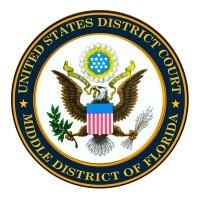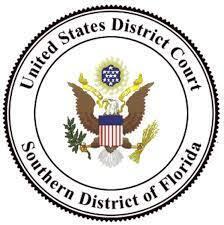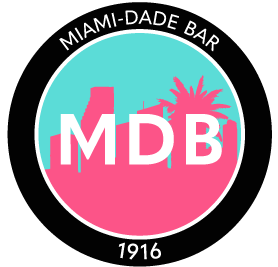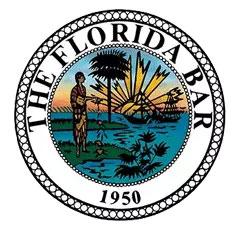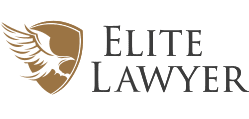Miami Probate Lawyer
Trusted and Skilled Probate Lawyers in Miami, Florida
The death of a family member can be an extremely tough experience. On top of dealing with grief, adjusting to a life without your loved one, and the funeral, you may need to manage their estate and determine what should be done with their assets. If they left a last will and testament, the personal representative or executor of the will has a duty to ensure that a person's beneficiaries will receive assets correctly. Without a will, the estate will be divided amongst family members in accordance with Miami probate law.
Trying to understand the probate process without legal assistance can be difficult, and many families make the mistake of trying to execute a will without a lawyer. However, a probate attorney can help ensure that the will meets all legal requirements, that all rightful heirs get what they are entitled to, and that the terms of the will are carried out correctly.
Probate Lawyers at Miami Family Law Group, PLLC
Miami Family Law Group, PLLC can help you with all aspects of probate administration and probate litigation. Our attorneys have more than 20 years of experience, and we have the skills necessary to help you with your probate case. We understand how tough it can be to go through the probate process after a family death, particularly if there was no will or if there are family conflicts. We prioritize protecting families, and we will guide you through the process with compassion while making sure your legal needs are addressed correctly.
A probate attorney from our law firm can help you with filing registration documents for a will, paying taxes and debts, selling real estate, resolving disputes amongst beneficiaries, collecting assets, litigation, and any other matter that you need assistance with.
Contact our office at 305-520-7874 to set up a consultation with a probate attorney.
What Is Probate Law?
Probate or estate administration is settling a deceased person's estate. If the person has a last will and testament, the probate process seeks to validate this document on behalf of the deceased. In the event that a person had a will or trust executed prior to their passing away, their estate is known as "testate".
However, if a person did not execute a trust or will prior to their passing, and there is no documentation to show how their assets should be distributed, their estate is known as "intestate". Florida law provides a default set of rules for how an estate should be divided between family members if a person dies without a will or with an invalid will.
The hierarchy is as follows:
- If there are no surviving lineal descendants, such as children or grandchildren, the entire estate will go to the decedent's (the deceased person) surviving spouse.
- If the decedent and surviving spouse had descendants together (children, grandchildren), and neither of them had children with another person, the surviving spouse may also inherit the entire state.
- If the decedent has lineal descendants that are not related to the surviving spouse, one-half of the estate will go to the surviving spouse and the balance will be divided amongst the descendants based on the "per stirpes" method.
- If the decedent has surviving lineal descendants and no surviving spouse, the estate will be divided amongst the descendants.
Trying to figure out who is entitled to assets when the deceased does not have a will or trust can be confusing. The probate attorneys from our law firm can offer advice on how your deceased relative's intestate estate should be administered in your case.
The Probate Process in Miami, FL
The probate administration process is the process of executing a deceased person's will, trust, or other estate planning documents after their death. Depending on the family situation and whether there are any disputes between family members, the legal process of probate administration can be complex, so it is important that you seek legal counsel from one of our experienced probate lawyers.
Filing the Petition
The first step in the formal administration of probate is to file the petition for probate in a Miami circuit court. The surviving spouse or descendants must obtain the last will and testament, list all the assets contained in the will, provide their titles, and list their approximate values. It is important that the last will and testament is filed within the first 10 days after the death.
Recognizing the Personal Representative
Once the documentation has been filed with the court, the judge overseeing the case will assess the validity of the will. If it complies with Florida probate law, the judge will then appoint the executor of the estate or the personal representative. If the will or trust specified who the executor should be, the judge will typically appoint this person as the executor.
However, if the will does not specify who the executor should be, a family member or beneficiary can petition the court to be appointed as the executor. As the executor or personal representative, you have the authority to administer and settle the estate.
Inventory of the Estate
The executor of the will is required to provide a comprehensive inventory of the estate, including all property and assets that are included in the probate process. Sometimes, assets and property may be designated to other beneficiaries outside of wills or trusts, and these assets do not have to be included in the inventory.
The types of assets that could be included in the inventory include:
- Real estate or property owned by the decedent.
- Bank accounts in the decedent's name that do not have a beneficiary or co-owner.
- A life insurance policy that is owed to the decedent's estate.
Notice of Probate
Once the personal representative has completed the probate inventory, they are required to notify all parties subject to the probate. This includes the beneficiaries (those who will receive assets or property) and the heirs (next of kin who would receive assets or property in the absence of a will).
The executor is also required to notify the deceased's creditors about the probate process. In the event that the deceased has not paid debts to a creditor, the creditor will have three months from the date of this notice to file a claim with the probate court.
Paying Taxes, Debts, and Expenses
Before distributing assets and property to beneficiaries, the personal representative must ensure that all taxes, debts, and expenses of the decedent are paid. They will have to file tax returns, including their final 1040 form for tax returns, 1041 form for taxable income on the estate, and 706 forms for federal estate tax returns on the gross estate.
If there are any legally valid claims filed by creditors, the personal representative must settle these claims. In the event that there are not enough assets to pay back all taxes, debts, and expenses, the court will have the final decision on which parties take priority.
Transfer of Assets
The final step in probate cases is the distribution and transfer of assets to all beneficiaries and heirs. It is important that all taxes, debts, and expenses have been taken care of before the personal representative can transfer assets. If the decedent did not have a will, the assets will be divided in accordance with Miami law on probate.
Common Probate Issues in Miami, FL
Will and trust administration is rarely straightforward. In addition to the legal proceeding itself being quite complex and confusing, there are often many probate matters that need to be figured out before the estate can be distributed. Often, these issues can cause probate cases to be dragged out for long periods of time. The best way to ensure that probate matters are resolved quickly is to hire an experienced probate attorney to help with your case.
Disputes Among Family Members
One of the main issues that our probate lawyers encounter is arguments in which the family members of the deceased disagree about the estate plan. Going through a loved one's death is extremely tough, and being tasked with dividing up their loved one's estate can make this process even harder. Determining what the person wanted can be especially problematic if they had not created an estate plan before their death.
Without estate planning documents to refer to, beneficiaries are required to determine who should be the personal representative of the estate, divide up the assets while following all applicable laws, and complete the probate process with the assistance of a probate lawyer if the estate's total value is at least $75,000. The process of administering an estate can often cause tensions between the members of a family, which can make it harder to divide up an estate.
A probate lawyer can provide invaluable assistance to the executor of the will, helping to relieve tensions between families and help ensure that the deceased person's assets will be divided fairly according to the law. A lawyer can help by facilitating communication between family members, advising each beneficiary of the will to their entitlements, and addressing any legal concerns that may arise during the probate process.
Assets Located in Different States
When a deceased person has assets or real estate in multiple states, the probate process can get quite complicated. This is because each state has its own estate administration laws. If a person had a residence in Florida but also owned assets in New York, for example, those assets will be subject to New York's probate laws.
As such, a personal representative may have to conduct probate cases in multiple states. Some states also have laws requiring probate lawyers to provide representation for executors or estate administrators. One of our Miami probate lawyers can offer guidance on whether local attorneys may need to be hired or whether other requirements will need to be met when handling probate issues in states other than Florida.
Personal Representative Not Accepting Role
Whether named in a will or decided by a court, someone must be designated as the estate's personal representative or executor. Once they have been appointed as a personal representative, they will be required to meet their duties as they complete the probate process. If a person does not wish to serve as the executor, the probate court will designate someone else as the personal representative to administer the estate, which can often delay the process significantly.
The easiest way to prevent this situation from happening is to communicate with the designated executor during the estate planning process and make sure they are willing to be named as the executor of your will.
Probate Litigation in Miami, FL
Probate litigation occurs when there are contested issues in relation to the validity of a will, asset entitlements, and other probate issues. The main types of probate litigation include will contests, will construction, breach of fiduciary duty, and non-marital children seeking inheritance. If you are the personal representative of a contested estate, or if you suspect that you are being denied assets, it is vital that you contact a probate attorney to help with your case.
Will Contest
A will contest can be brought against a last will and testament that you believe to be invalid. Some grounds for invalidity include:
- The will does not meet legal requirements.
- The testator was coerced into signing the will (undue influence).
- The testator was incapacitated when signing the will.
- Existence of a will that was executed after the one put forward for probate.
When a person opens a probate case with the will of a deceased person, other parties to the will have a short amount of time to file a petition to contest the will, usually 90 days.
Breach of Fiduciary Duty
The personal representative or executor of a probate estate has a "fiduciary duty" to execute the will with a high standard of care. They are required to interpret the will as per the intention of the deceased person, or to the same standard that they would execute their own will. If a personal representative does not respect this duty and commits wrongdoing, they can become the subject of probate litigation and be removed from their duties.
Probate in a Wrongful Death Claim in Miami, FL
"Wrongful death" is when a person's death is caused by the negligence of another party, which could be in a fatal car accident or medical malpractice, for example. To recover compensation for wrongful death, a person must file a wrongful death claim, which can be done alongside personal injury lawsuits.
If your loved one was killed by another party's negligence, the personal representative of the deceased person's estate is responsible for filing a wrongful death suit. This claim is pursued separately from probate proceedings and is dealt with as a civil lawsuit. If the wrongful death suit is successful, family members may be able to recover funeral expenses and compensation for loss of income to the family household, depending on the circumstances.
To pursue a wrongful death lawsuit, it is strongly advised to seek legal assistance from an attorney who has experience handling these types of cases. They can offer advice on whether you may be entitled to recover compensation, help investigate your case, and file a claim on your behalf. A probate attorney can advise you on which beneficiaries or heirs are eligible to recover compensation from a wrongful death suit.
Contact a Miami, Florida Probate Attorney
Most Miami residents do not have experience dealing with probate, and when a close family member dies, it can be a very stressful experience. Trying to understand the probate legal system, dividing assets and property, paying off debts and taxes, and executing the will can be difficult tasks, particularly without legal assistance. If you need to deal with probate issues after a loved one's death, we recommend contacting a probate attorney at Miami Family Law Group, PLLC today.
Our law firm's principal focus is on protecting your family and ensuring that your best interests are taken care of. We have a team of the best probate lawyers who can assist with the administration of estates in Miami-Dade County, including carrying out the terms of a will, paying debts and taxes, litigation, and much more. As your legal representative, we will offer personal attention to your probate case and help you complete the legal process without any stress.
Call 305-520-7874 or contact us online to arrange a consultation with a Miami probate attorney from our law firm today.
Contact Miami Family Law Group, PLLC
Our attorneys are ready to help address your legal needs. Schedule an appointment by calling 305-520-7874 or contacting us online.


